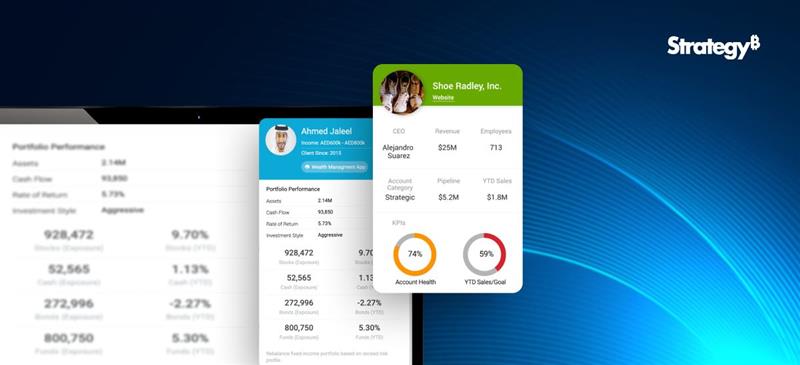1. Connect Data without Migration
Getting data into Data Cloud is straightforward, with batch and real-time ingestion options. Whether you’re a financial institution managing sensitive customer data, a retailer analyzing sales trends, or a healthcare provider processing patient information, the ability to bring in data from existing systems like AWS, Snowflake, or Google Big Query without migration or duplication is a game-changer.
With Tableau‘s seamless integration, all your data is available for rich, interactive analytics. Imagine a retail company analyzing millions of transactions in a blink with Hyper, a SQL database system designed for fast queries. The Hyper engine, running natively on Data Cloud, offers low latency and efficient access to data, allowing businesses to make swift, informed decisions.
Use Case: Tableau Cloud enhances the data fabric approach by enabling healthcare providers to visualize and interact with integrated patient data using dashboards and analytical reports from various departments in real time. This empowers professionals in making quicker, more informed decisions without needing to migrate data, ultimately improving patient care through seamless access to unified records.
2. Ready-to-use Dashboards
Tableau Accelerators are ready-to-use dashboards built using standard data objects in Data Cloud, designed to provide immediate value. Whether you’re in marketing, operations, or customer service, these accelerators can help you quickly gain insights without starting from scratch.
For instance, a marketing team in a retail company can use the Segmentation and Customer Insights dashboard to understand customer demographics and monitor changes in segments over time, enabling more targeted marketing campaigns.
Use Case: Using Tableau Accelerators, the retail chain quickly enhances its sales performance monitoring capabilities, enables faster decision-making, and improves business outcomes. The pre-built nature of Tableau Accelerators allows for rapid deployment and customization, making them a powerful tool for businesses looking to accelerate their analytics initiatives.
3. Deeper Customer Insights
In Data Cloud, you can segment your data to better understand your customer base. Marketers and analysts across industries now have a new way to create segments in Data Cloud directly from Tableau. As you explore data, you can make selections within your visualization and publish a new segment in Data Cloud.
This feature is particularly valuable for industries like retail and hospitality, where customer segmentation is key to personalizing experiences and driving loyalty. The ability to share these segments across Salesforce clouds or other platforms ensures that strategic actions, such as targeted marketing campaigns, are data-driven and effective.
Use Case: Tableau Cloud is used by the marketing teams to analyze social media campaign data and enhance user experience with AI personalization. This enables them to continuously refine their understanding of customer preferences as new data comes in, allowing for more agile and responsive marketing strategies. It also helps identify the trends and patterns in customer behavior across different channels and invest in the channel with more ROI.
4. Explore Hidden Insights from Unstructured Data
Unstructured data, such as call transcripts or social media posts, can be challenging to analyze. However, with advancements in AI, Data Cloud makes it easier to search and analyze this data in Tableau.
Industries that deal with large amounts of unstructured data, like insurance or telecommunications, can significantly benefit from this capability. For example, an insurance company can analyze call transcripts to identify common issues and improve customer service processes.
Use Case: The telecom companies use NLP to analyze the text from these interactions, categorizing them by issue type and sentiment. By analyzing the data using Tableau, the companies identify recurring problems, leading to targeted training for customer service agents and quicker resolution times. This results in improved customer satisfaction and reduced service handling time.
5. Custom ML Models
Using Einstein Studio, you can easily apply custom machine learning models to your Data Cloud data. These models can be used to visualize predictions in Tableau, helping organizations across industries make data-driven decisions.
For example, a manufacturing company could proactively use predictive models to foresee equipment failures and schedule maintenance, reducing downtime and saving costs. Similarly, a retail company could predict which products are likely to sell out and adjust inventory levels accordingly.
Use Case: The manufacturing companies incorporate IoT sensor data from the production floor into a Data Cloud. AI algorithms analyze this data, identifying trends and predicting potential machine failures. Subsequently, these predictive models are visualized in Tableau Cloud, affording real-time insights to the operations team. The dashboards showcase real-time equipment status, failure probabilities, and recommended maintenance schedules, enabling the operations team to proactively schedule maintenance, thus reducing downtime and averting costly repairs.
Transforming Industries with Data Cloud and AI
The integration of Data Cloud and AI with Tableau offers unparalleled opportunities for industries to unlock the full potential of their data. From financial services to retail, healthcare to manufacturing, these innovations enable organizations to gain deeper insights, make smarter decisions, and drive business success.
Whether you’re looking to streamline data access, jumpstart your analytics, create targeted customer segments, analyze unstructured data, or leverage machine learning models, the combination of Data Cloud and AI in Tableau provides the tools you need to stay ahead in a data-driven world.
Are you ready to transform your business with the power of Data Cloud and AI in Tableau? The future of analytics is here—it’s time to embrace it. Connect with us for a free demo: https://www.beinex.com/free-tableau-software




